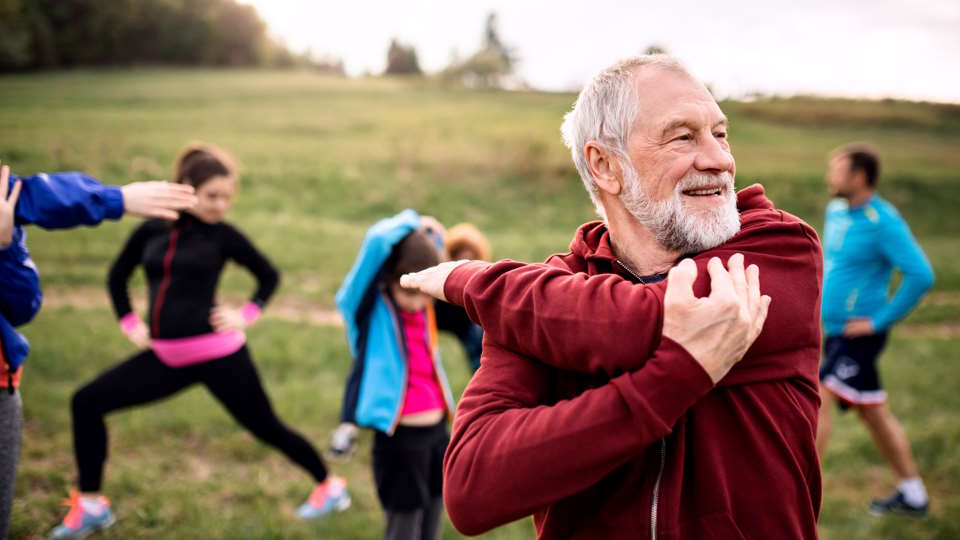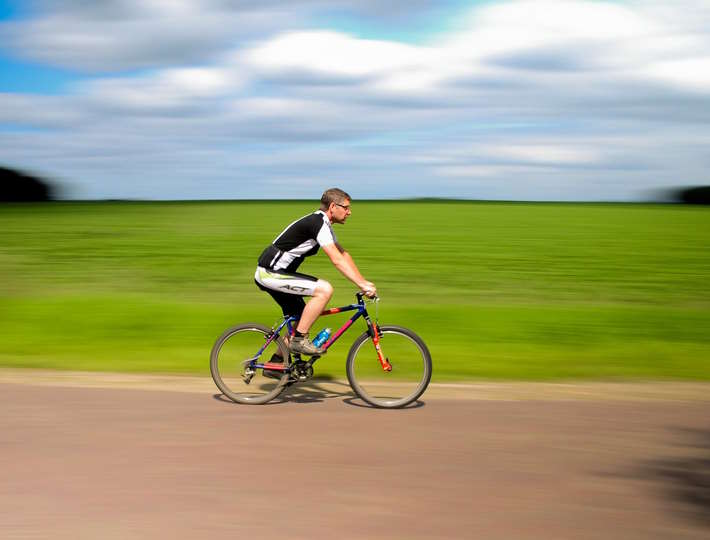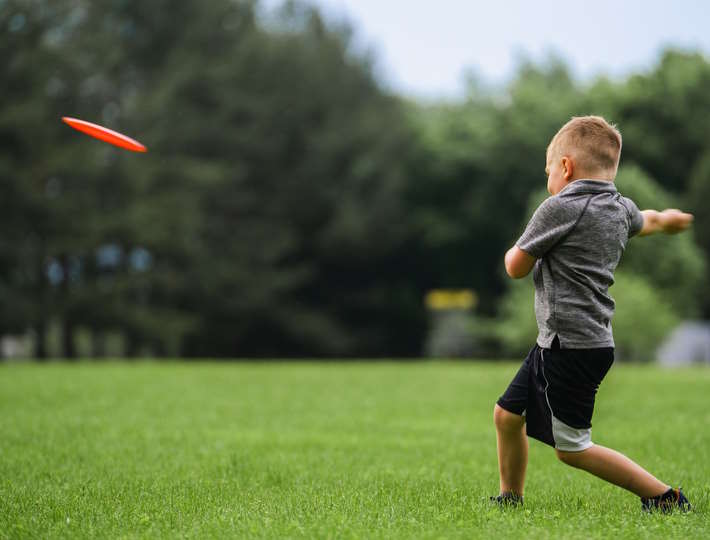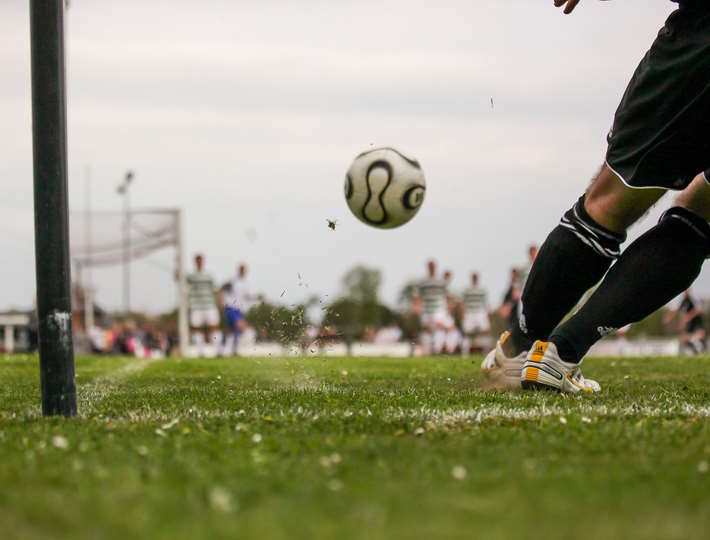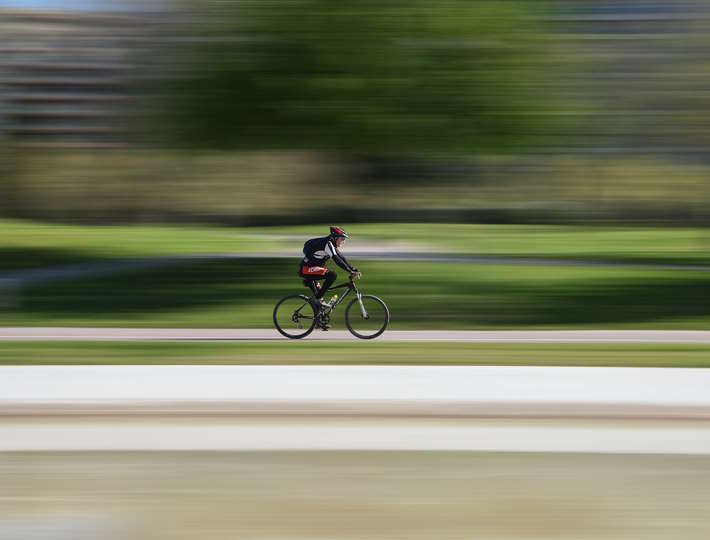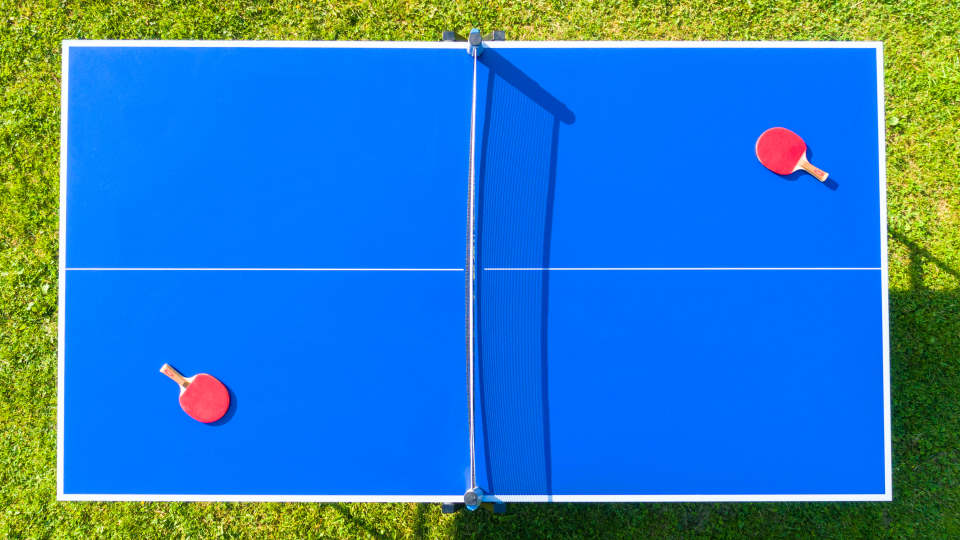The importance of physical activity cannot be overstated when it comes to sports performance. It is no secret that athletes need to be in good physical shape to excel in their respective sports. This is why it is important for them to engage in regular physical activity, both indoors and outdoors. Outdoor activities, in particular, offer numerous benefits that can positively impact an athlete’s performance on the field. In this blog post, we will explore the importance of physical activity and outdoor activities for sports performance.
Outdoor activities such as hiking, rock climbing, and kayaking can improve an athlete’s strength, endurance, and flexibility. These activities require the body to move in different ways than traditional exercise, offering a full-body workout that can help athletes develop greater physical capability. Additionally, outdoor activities can provide a change of scenery which can be refreshing and help athletes avoid boredom associated with traditional workouts.
Outdoor activities not only have physical benefits but can also have a positive impact on one’s mental health. Activities such as hiking and rock climbing can help athletes to improve their focus and motivation, which can translate to greater mental toughness and resilience on the field. Being in nature has also been shown to reduce stress levels and promote feelings of well-being.
Cross-training is another significant benefit of participating in outdoor activities. Engaging in different activities such as cycling, hiking, and swimming can provide athletes with an opportunity to work on different muscle groups and improve their overall fitness level. Cross-training also helps to prevent injury by avoiding overuse of specific muscle groups.
Specific Sport Examples
Outdoor activities can provide benefits to specific sports such as running, cycling, and team sports.
- For example, running outdoors can improve an athlete’s cardiovascular fitness and overall endurance.
- Cycling outdoors can help with balance and coordination, which can translate to better performance on the bike.
- Team sports such as soccer and basketball can benefit from outdoor conditioning drills that improve speed and agility.
Tips for Incorporating Outdoor Activities into Training
There are several ways that athletes can incorporate outdoor activities into their training regimen.
- One way is to organize a weekend training session that includes hiking or kayaking.
- Another way is to go for a run outdoors instead of on a treadmill.
- Athletes can also use outdoor spaces such as parks and beaches for bodyweight workouts and agility drills.
In conclusion, outdoor activities offer numerous benefits that can enhance an athlete’s physical and mental performance. Engaging in physical activity can help athletes to develop greater physical capability and mental toughness, while cross-training can prevent injury and help athletes to reach their full fitness potential. Incorporating outdoor activities into a training regimen can be a fun and refreshing way to achieve these goals.
Physical Benefits
Participating in outdoor activities can have a significant impact on an individual’s physical health. Activities such as hiking, rock climbing, and kayaking are not only enjoyable but also offer numerous physical benefits. Here are some physical benefits of outdoor activities:
Improves Strength: Outdoor activities such as rock climbing and hiking require the use of various muscle groups, which can help to improve overall strength. Rock climbing, for instance, requires upper-body strength, whereas hiking involves lower-body strength. Participating in these activities regularly helps to build and tone muscles, leading to improved strength.
Boosts Endurance: Engaging in outdoor activities can help to improve an individual’s endurance. Hiking, kayaking, and other outdoor sports require a lot of physical exertion, which can lead to an increase in endurance levels. Regular participation in such activities can help to build cardiovascular endurance, which is essential for various sports.
Increases Flexibility: Outdoor activities such as yoga, hiking, and rock climbing require a lot of flexibility. Engaging in these activities can help to improve overall flexibility, which can be beneficial for various sports. A flexible body is less prone to injuries and can perform better in various physical activities.
| Activity | Calories Burned per Hour |
|---|---|
| Hiking | 400-700 |
| Rock Climbing | 500-900 |
| Kayaking | 400-500 |
By engaging in outdoor activities such as hiking, rock climbing, and kayaking, individuals can experience numerous physical benefits. These activities not only help to improve strength, endurance, and flexibility but also provide an opportunity to burn calories and maintain a healthy weight. So, next time you plan your workout routine, consider incorporating some outdoor activities for better physical health.
Mental Benefits
The physical benefits of outdoor activities are widely known and celebrated, but their mental benefits are just as important. Participating in activities such as hiking, rock climbing, and kayaking can improve focus, motivation, and mental toughness, which are all vital for success in various sports.
One of the most significant mental benefits of outdoor activities is the improvement in focus. When participating in activities such as hiking or rock climbing, individuals must remain alert and focused on their surroundings, as one misstep could lead to a dangerous situation. This level of focus translates well to sports performance, where athletes must remain fully focused on their goals and objectives.
In addition to focus, outdoor activities can also improve motivation. Being in nature and participating in physical activities can have a revitalizing effect on the mind and body, which can help to motivate individuals in their sport. Rather than feeling sluggish or unmotivated, outdoor activities can provide the energy and inspiration needed to push through tough training sessions and compete at the highest level.
Finally, outdoor activities can improve mental toughness. Outdoor activities are often challenging and require individuals to push past their limits. This level of resilience and determination can transfer over to sports, where athletes must remain mentally strong in the face of adversity.
Overall, the mental benefits of outdoor activities are numerous and significant. Focus, motivation, and mental toughness are all crucial components of sports performance, and these benefits can help individuals take their game to the next level.
Cross-Training
Participating in outdoor activities can provide numerous benefits, and one of them is cross-training. Cross-training refers to engaging in various activities that complement and supplement your main sport or exercise routine. Cross-training can help prevent overuse injuries, improve overall fitness, and increase skill proficiency in your primary sport.
One of the main advantages of cross-training through outdoor activities is that you engage different muscle groups and use different movement patterns than you would in a gym or on a field. For example, hiking can improve your endurance and leg strength, rock climbing can improve your grip strength and upper body strength, and kayaking can improve your core strength and coordination.
Another benefit of cross-training through outdoor activities is the opportunity to challenge your balance, agility, and proprioception. These skills are essential for many sports, but they often get overlooked in traditional gym workouts. Practicing them through outdoor activities can help prevent falls, improve your reaction time, and enhance your overall athletic ability.
- Rock climbing
- Kayaking
- Hiking
Aside from the physical benefits, participating in outdoor activities for cross-training can also have mental benefits. It allows you to break away from routine and adds variety to your training, which can keep you motivated and prevent burnout. Furthermore, being outdoors in nature has been shown to alleviate stress and improve mental health.
If you’re interested in incorporating outdoor activities into your cross-training routine, start by identifying activities that complement your main sport. Consider consulting with a trainer or coach to develop a plan that targets specific areas of weakness or injury risk.
Remember, the goal of cross-training is to supplement your main sport or exercise routine, not replace it. Outdoor activities can be a fun and effective way to enhance your overall fitness, improve mental toughness, and prevent injuries. Give it a try and see how it can benefit your sports performance!
Specific Sport Examples
Outdoor activities are not just for leisure time but can also benefit an individual’s physical and mental health. Engaging in outdoor activities can significantly boost sports performance by improving strength, endurance, flexibility, focus, motivation, and mental toughness. These benefits can be applied to different sports, including running, cycling, and team sports.
Running: Running outdoors can provide better terrain than a treadmill. A runner can train under different outdoor conditions such as hills, rough terrain, and varied weathers. Running up and down the hills is a form of resistance training that can improve strength, stamina, and endurance. Additionally, running outside has been known to be more enjoyable, which can undoubtedly impact a runner’s mental state positively. It can also reduce the impact on the joints and improve flexibility through exposure to different terrains and surfaces.
Cycling: Cycling is an excellent cardiovascular workout that can be performed indoors or outdoors. Outdoor cycling provides a more demanding experience than indoor cycling due to the changing terrains and environmental conditions such as winds and also offers ample opportunities for cross-training. By cycling outdoors, an individual can work the lower body muscles such as the glutes, quadriceps, and calves more effectively. Furthermore, cycling hill climbs mimic resistance training, which builds strength and endurance by activating the glutes and quadriceps.
Team sports: Outdoor activities can also benefit team sports such as basketball, soccer, and volleyball. Such sports require players to maneuver quickly through different terrains and weather conditions. Team sports are excellent avenues for improving mental toughness and teamwork since players learn to persevere through the discomfort of every outdoor condition. Additionally, outdoor sports provide an opportunity for players to gain strength and endurance while practicing team building skills.
Participating in outdoor activities such as running, cycling, and team sports can improve an individual’s overall sports performance. Outdoor training provides opportunities for cross-training, resistance training, mental motivation, and focus. By being aware of how outdoor activities can benefit specific sports, athletes can attain their goals faster by tapping into the endless benefits of outdoor training.
Tips for Incorporating Outdoor Activities into Training
Participating in outdoor activities can be a fun way to improve your fitness and overall health. These activities are not only beneficial for your physical health, but also provide a mental boost, helping you to stay focused and motivated. Incorporating outdoor activities into your training regimen can provide variety and prevent boredom, as well as help prevent injury by providing cross-training opportunities.
Here are some practical suggestions for incorporating outdoor activities into your training regimen:
- Start with something small: If you are new to outdoor activities, start with something easy, such as a short hike or a walk around the neighborhood. As you become more comfortable, gradually increase the distance or difficulty level.
- Set specific goals: Set goals for your outdoor activities, such as running a certain distance, completing a specific trail, or climbing a certain peak. This can provide motivation and help you track your progress.
- Find a partner: A workout buddy can make outdoor activities more enjoyable and provide an element of accountability.
- Mix it up: Incorporate a variety of outdoor activities into your training regimen, such as hiking, kayaking, rock climbing, or cycling. This can prevent boredom and provide cross-training opportunities.
- Be prepared: Before heading out, check the weather forecast, bring appropriate gear and clothing, and bring plenty of water and snacks.
- Know your limits: Don’t push yourself too hard, especially when starting out. Listen to your body and adjust your outdoor activities as necessary.
- Track your progress: Use a fitness tracker or smartphone app to track your progress and see how you are improving over time.
In conclusion, incorporating outdoor activities into your training regimen can be a fun and effective way to improve your fitness and overall health. By starting small, setting specific goals, finding a partner, and mixing it up, you can prevent boredom and provide cross-training opportunities. Just be sure to be prepared and know your limits, and soon you’ll be enjoying the many benefits of outdoor activities for sports performance.
Conclusion
Participating in outdoor activities can have a significant impact on sports performance, both physically and mentally. From improving strength, endurance, and flexibility to increasing focus, motivation, and mental toughness, outdoor activities offer numerous benefits that can be incorporated into a training regimen.
Cross-training through outdoor activities such as hiking, rock climbing, and kayaking can also provide athletes with an opportunity to prevent injuries and enhance their performance in specific sports such as running, cycling, and team sports.
To incorporate outdoor activities into your training regimen, it is important to start slowly and gradually increase intensity and duration. Finding a local hiking or rock climbing group, joining a cycling or kayaking club, or simply taking your training outdoors can also help keep you motivated and engaged in your sport.
In conclusion, outdoor activities can provide significant physical and mental benefits for athletes looking to improve their sports performance. By incorporating these activities into a training regimen, athletes can enhance their strength, endurance, flexibility, focus, motivation, and mental toughness, as well as prevent injuries and improve performance in specific sports.
